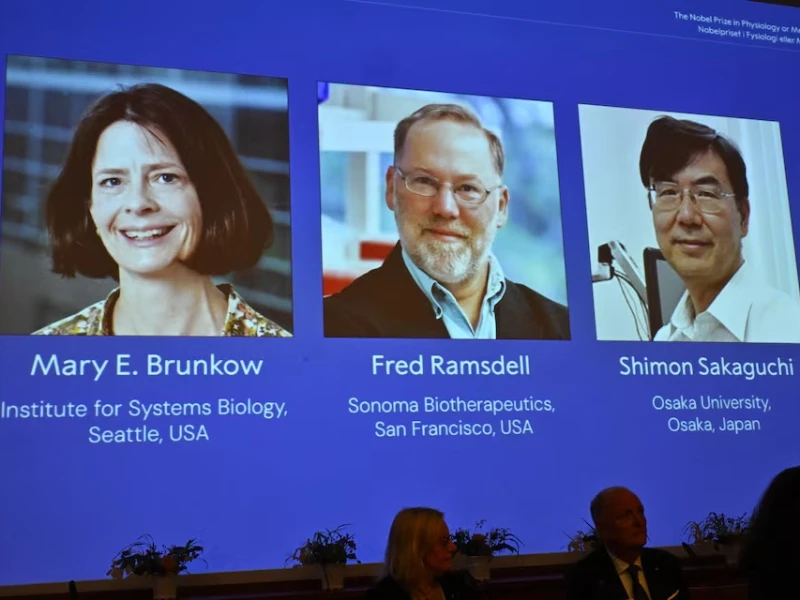The 2025 Nobel Prize in Medicine has been awarded jointly to American scientists Mary Brunkow and Fred Ramsdell, and Japan’s Shimon Sakaguchi for groundbreaking research revealing how the immune system distinguishes and protects healthy cells — a discovery paving the way for new treatments for autoimmune diseases and cancer.
The Nobel Assembly at Sweden’s Karolinska Institute announced the laureates on Monday, recognising their pioneering work on peripheral immune tolerance — the body’s ability to control immune responses to prevent self-damage while defending against infections.
Their discoveries have laid the foundation for a new field of research and spurred the development of novel therapies, including those targeting cancer and autoimmune disorders,” the Nobel committee said in its citation.
The three scientists were honoured for identifying regulatory T cells — specialised immune cells that act as the body’s security system, preventing the immune response from attacking its own tissues.
Sakaguchi, a professor at Osaka University, told reporters outside his laboratory that receiving the Nobel was “a tremendous honour,” according to Japan’s Kyodo News.
Although no regulatory T-cell therapies have yet reached the market, more than 200 human trials are underway globally, according to the Nobel committee’s secretary Thomas Perlmann.
Each laureate will receive 11 million Swedish kronor (about $1.2 million) and a Nobel gold medal presented by Sweden’s King Carl XVI Gustaf at a ceremony in Stockholm on December 10 — the anniversary of Alfred Nobel’s death.
The Nobel Prizes, established in 1901 under the will of Swedish inventor and philanthropist Alfred Nobel, honour outstanding contributions in science, literature, peace, and economics.
The Peace Prize is awarded separately in Oslo, reflecting the historical union between Sweden and Norway during Nobel’s lifetime.
The Medicine Prize traditionally opens Nobel week, with awards in physics, chemistry, literature, peace, and economics to follow over the coming days.
Last year’s medicine award went to U.S. researchers Victor Ambros and Gary Ruvkun for their discovery of microRNA, which plays a crucial role in regulating how cells grow and differentiate.
More than a century on, the Nobel Prizes remain among the world’s most prestigious honours, celebrated annually with royal ceremonies and a grand banquet in Stockholm.


 Prev Post :
Prev Post :
